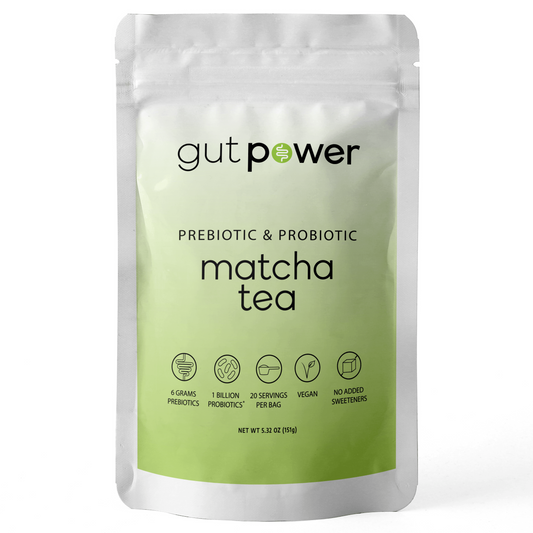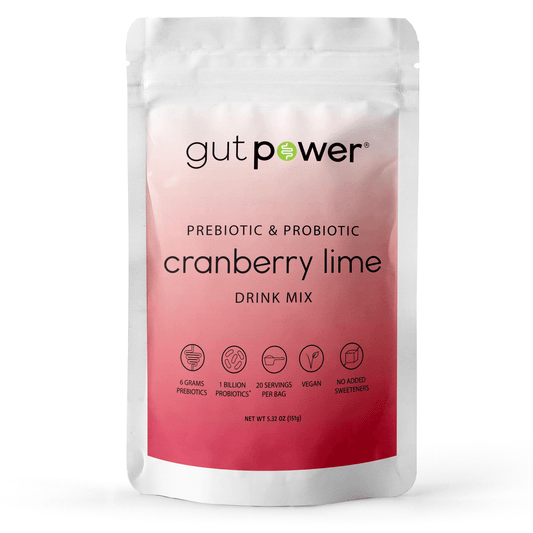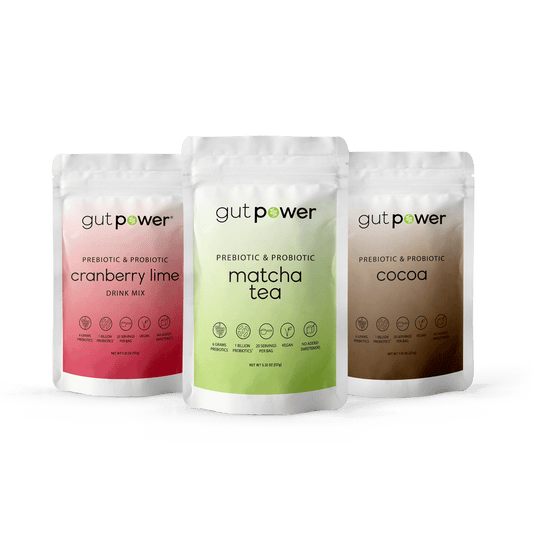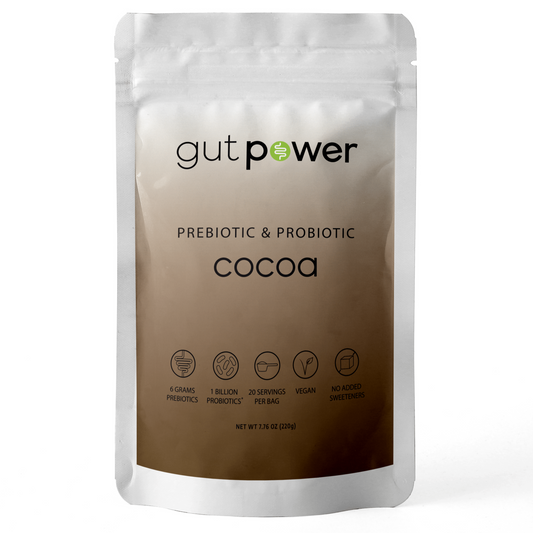How We Chose the Best Matcha Green Tea Powder for Gut Power Drinks
When it comes to the quality of your matcha, there’s actually a lot to consider. Is it organic? Is it tested for heavy metals? Is the color high-quality bright green or low-quality yellow-ish green?
At Gut Power™ Drinks, we only use the highest quality ingredients. So let us tell you about how we found the best matcha tea for our Gut Power™ Matcha.
What Is Matcha?
Match is a finely-ground, powdered tea made from tea leaves that are shade-grown. Growing the tea in the shade deprives it of sunlight, which in turn leads to higher levels of chlorophyll in the leaves. This results in the classic bright green color of matcha powder.
Matcha is consumed as a tea or in culinary applications, like cakes and cookies. We’re partial to drinking it, but you can do a lot with matcha green tea powder if you get creative!
Grades of Matcha Green Tea Powder
There are many grades of matcha green tea available. Lower grade matcha is better suited for culinary applications, while higher grade matcha (often referred to as “ceremonial grade” matcha) is reserved for drinking. While there are no official definitions of what classifies as "ceremonial grade" or "culinary grade," there are some key characteristics to look for that can help you determine the quality of your matcha -- one of which is the color of your matcha.
At Gut Power™ Drinks, we've chosen a high grade matcha that is perfect for drinking. Unlike cheaper matcha powders, you’ll actually enjoy drinking this straight up -- no milk, no sweetener -- if that’s your jam.
You’ll notice that our matcha is a vibrant bright green -- this is a sign of a high quality matcha. Lower culinary grades tend to be a bit yellow and dull-looking. Steer clear of those if you want a smooth, slightly sweet drinking matcha. While they’re fine for baking purposes, you won’t be happy drinking it.
Keep in mind that leaving your matcha exposed to the elements will also start to dull its flavor and color over time as well, so make sure you seal your bag tight after you open it and store it in a cool, dry place. To keep your matcha fresh as long as possible, we recommend storing it in the refrigerator. That said, Gut Power™ Matcha is completely shelf-stable, so don’t worry if you don’t want to store it in the fridge.
Organic Matcha Green Tea Powder
From the beginning, we knew one thing about the matcha we wanted to use: It had to be organic. We didn’t want pesticides ruining the health benefits of matcha!
But beyond being organic, we also wanted to make sure that our matcha was being tested regularly for heavy metals and radiation to ensure it was the best quality matcha we could possibly get our hands on.
Luckily, we were able to find exactly what we were looking for. Our matcha supplier grows their matcha green tea in the Nishio region of Japan, specifically in places like Kagoshima because of the great mineral-rich soil and the fact that it is far from cities and other farms using pesticides. This allows us to get the purest, beautiful bright green matcha tea powder that we use in Gut Power™ Matcha.
Matcha Benefits
We were so happy to find such a great supplier for the best organic matcha green tea powder because research shows that the health benefits of matcha are numerous. We didn’t want to temper those benefits with the negative impact of pesticides, heavy metals, or radiation.
Matcha green tea contains a few different components that may provide a multitude of health benefits.
The FDA doesn’t allow food companies to say too much about the potential health benefits of their products, but we at Gut Power™ Drinks encourage you to take a look at the research that’s been done on our ingredients yourself. To help you, we’ve curated some of the latest research on the health benefits of matcha green tea powder.
Matcha green tea powder contains a couple components that make it such a beneficial food for us to consume. These include:
EGCG (Epigallocatechin gallate)
Epigaloocatechin gallate (EGCG) is a polyphenol (a type of antioxidant) found in high amounts in matcha green tea powder. Polyphenols in general have been shown to be exceptional for supporting the proper balance of the microbiome.
L-Theanine
L-theanine is an amino acid known for its calming properties, found in high amounts in tea, especially matcha green tea. L-theanine is present in matcha along with a small amount of caffeine, which provides a steady, calm energy that lasts instead of the jolt and crash of caffeine in coffee.
The Research
Check out some of the latest research that’s been done on matcha green tea powder, EGCG, and L-theanine:
Anti-infective properties of epigallocatechin-3-gallate (EGCG), a component of green tea
Green tea polyphenols and their potential role in health and disease
Green tea effects on cognition, mood and human brain function: A systematic review
Beneficial Effects of Tea and the Green Tea Catechin Epigallocatechin-3-gallate on Obesity
Green tea consumption and risk of cardiovascular and ischemic related diseases: A meta-analysis
-
 Sold out
Sold outGut Power Matcha
Regular price $39.00Regular priceUnit price / per -
Gut Power Cocoa
Regular price $39.00Regular priceUnit price / per -
 Sold out
Sold outGut Power Cranberry Lime
Regular price $39.00Regular priceUnit price / per -
 Sold out
Sold outThe Starter Pack
Regular price $99.00Regular priceUnit price / per$132.00Sale price $99.00Sold out




